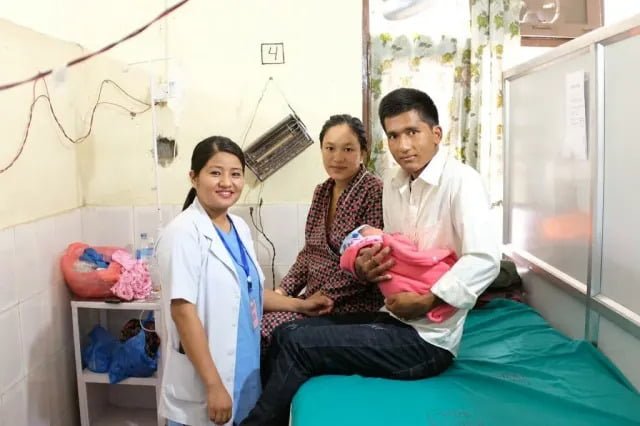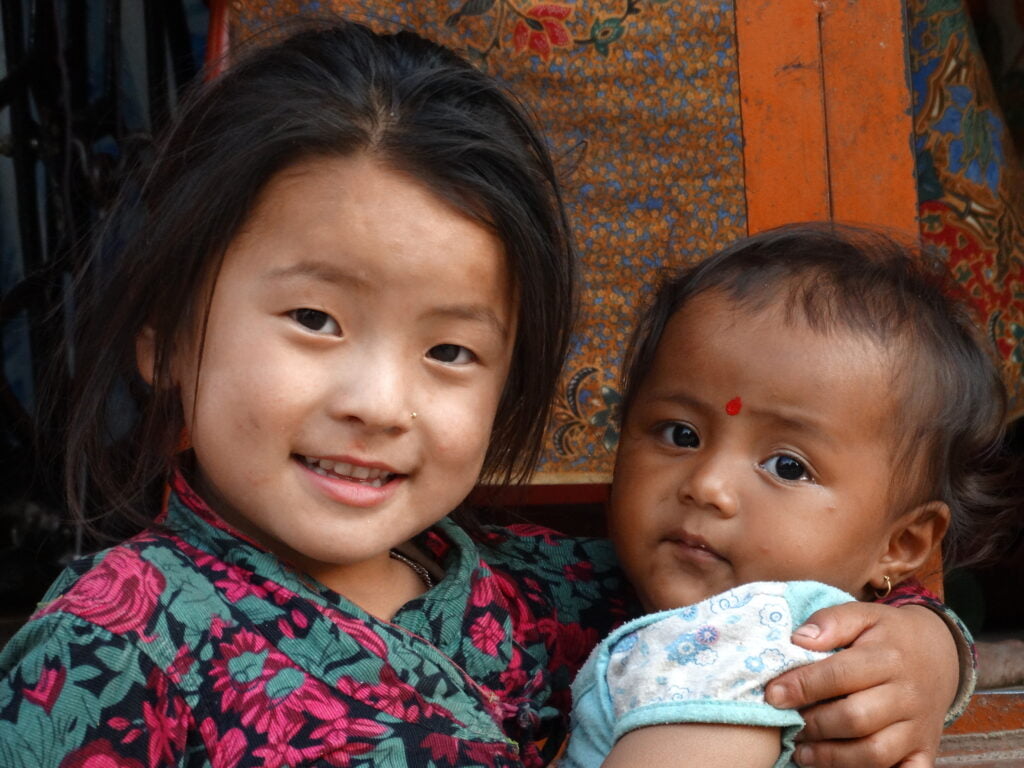The quest for parenthood can be a challenging and emotional journey for couples facing infertility issues. Luckily, progressions in helped regenerative advances, for example, Test Tube Baby cost in Nepal or In Vitro Treatment (IVF), have opened ways to trust and potential outcomes. In Nepal, a developing number of couples are looking for fertility treatments, making it fundamental to comprehend the Unnaturally conceived child cost in 2023. This complete aide expects to reveal insight into the different costs engaged with Unnaturally conceived child medicines in Nepal, empowering couples to settle on informed choices and leave on their way to life as a parent.

Understanding Test Tube Baby (IVF) Treatment
In Vitro Fertilization (IVF), usually known as Test Tube Baby cost in Nepal, is a progressive helped regenerative innovation that offers desire to couples confronting fruitlessness challenges. In a laboratory setting, this sophisticated procedure involves fertilizing eggs and sperm outside of the woman’s body. When prepared, the undeveloped organisms are then moved into the lady’s uterus, expanding the possibilities of pregnancy. IVF has changed the scene of ripeness medicines, giving a beam of desire to incalculable couples around the world. In Nepal, this state of the art innovation is acquiring notoriety, and understanding the IVF process is essential for those embarking on their journey to parenthood.
The IVF Process
The IVF process comprises several key stages, carefully orchestrated by a team of skilled fertility specialists and embryologists. Understanding each step is crucial for couples considering IVF treatment:
- Ovarian Stimulation: The first stage involves administering fertility medications to stimulate the ovaries, encouraging the production of multiple eggs. This step aims to increase the chances of obtaining viable eggs for fertilization.
- Egg Retrieval: Once the eggs reach the appropriate size, they are retrieved from the woman’s ovaries through a minimally invasive surgical procedure called transvaginal ultrasound-guided aspiration. This procedure is usually performed under anesthesia to minimize discomfort.
- Sperm Collection: On the same day as egg retrieval, the male partner provides a semen sample or sperm is collected through other methods, such as surgical sperm extraction (TESA/PESA), for the fertilization process.
- Fertilization: In the laboratory, the retrieved eggs and sperm are combined through conventional IVF or Intracytoplasmic Sperm Injection (ICSI). In conventional IVF, several sperm are placed in a dish with each egg, allowing natural fertilization. ICSI involves injecting a single sperm directly into each mature egg to facilitate fertilization, beneficial in cases of male factor infertility.
- Embryo Culture: The fertilized eggs, now embryos, are cultured in a controlled environment for a few days. The embryologists carefully monitor their development, selecting the healthiest embryos for transfer.
- Embryo Transfer: After several days of culture, one or more healthy embryos are selected and transferred into the woman’s uterus through a thin catheter. The procedure is typically painless and does not require anesthesia.
Success Rates of IVF
IVF success rates vary depending on multiple factors, such as the woman’s age, overall health, underlying fertility issues, and the expertise of the fertility clinic. Generally, younger women have higher success rates compared to older women. It is essential to discuss success rates with the chosen fertility clinic during the initial consultation to set realistic expectations.
Benefits of IVF
IVF offers various benefits to couples facing infertility challenges:
- Overcoming Fertility Obstacles: IVF can help overcome a wide range of infertility issues, including blocked fallopian tubes, endometriosis, male factor infertility, and unexplained infertility.
- Genetic Screening: Pre-implantation Genetic Testing (PGT) allows for the screening of embryos for genetic disorders, reducing the risk of passing genetic conditions to offspring.
- Control and Flexibility: IVF offers couples the flexibility to plan pregnancies, as embryos can be cryopreserved for future use, providing opportunities for family-building at their pace.
- Suitable for Various Cases: IVF is an inclusive treatment option suitable for same-sex couples, single individuals, and those facing complex fertility challenges.
In addition, couples seeking to overcome infertility and realize their dream of parenthood may benefit from IVF or Test Tube Baby treatment. For making well-informed decisions, it is essential to comprehend the IVF process, its success rates, and its advantages. With the backing of gifted richness subject matter experts and a legitimate ripeness center, IVF can carry additional opportunities and desire to couples leaving on their excursion to being a parent in Nepal.

‘Stop yearning for your baby and take a step forward for a miracle baby’
(Test Tube Baby cost in Nepal 2023): Test tube baby is now not outlandish in Nepal. With the birth of the first test-tube baby Om Mani Tamang in 2005, the Test-tube baby technique has made millions of happy couples till now. According to the statics, 70% of Nepal couples have stopped going for infertility treatment in a foreign country. This statics is enough to show the popularity of test-tube babies in Nepal.
Test tube babies are no less than a scientific miracle for couples who have been trying to conceive for a long-time. And Nepal Fertility Center makes it doable for them through the different procedures, and Test tube baby is one of those.
Test Tube baby is the common word used, but what is the exact medical term?
Test Tube Baby or IVF
Also known as IVF (In-Vitro Fertilization), the test tube baby technique is where eggs and sperms are retrieved and fertilized in vitro. The embryo is transferred near the mother’s fallopian tube.
There are bundles of reasons why the test tube baby technique is highly being recommended in Nepal. Still, damaged fallopian tubes of the mother or male infertility are the intrinsic reasons why test tube baby treatment is highly used in Nepal these days.
The IVF is a part of the ART (Assisted reproductive technology) methodology that makes pregnancy doable outside the mother’s body or un-naturally. IUI, IVF or test tube baby, ICSI, IMSI are a few of the methods that have made the impossible- possible.
Under the observation and guidance of the expert doctor, gynecologist and surgeons, the procedure for Test tube baby in Nepal proceeds. And the high success rate of happy couples is the most significant proof for that.

What are the reasons one should go for a Test tube baby in Nepal?
Going for a Test Tube Baby (IVF) in Nepal can be a life-changing decision for couples facing infertility challenges. Several compelling reasons make Test Tube Baby treatment a viable and promising option in Nepal:
- High Success Rates: Nepal has seen significant advancements in fertility treatments, and IVF success rates at reputable clinics are encouraging. The availability of experienced medical teams and modern facilities enhances the chances of a successful pregnancy.
- Expert Medical Professionals: Nepal boasts skilled fertility specialists, embryologists, and support staff who are well-versed in the latest IVF techniques. Their expertise ensures personalized care and tailored treatment plans.
- Comprehensive Diagnostic Services: Fertility clinics in Nepal offer comprehensive diagnostic services to identify and address underlying infertility issues accurately. This thorough evaluation helps optimize the success of the IVF procedure.
- Affordable Treatment Costs: Test Tube Baby cost in Nepal is relatively affordable compared to many other countries, making it an attractive option for couples seeking cost-effective fertility treatments without compromising on quality.
- Supportive Environment: Fertility clinics in Nepal provide a supportive and compassionate environment, acknowledging the emotional challenges of infertility. Counseling services and emotional support are readily available for couples throughout the treatment journey.
- Legal Framework: Nepal has clear legal guidelines and regulations pertaining to assisted reproductive technologies, ensuring the rights and legal recognition of children born through IVF.
- Advanced Technology: Many fertility clinics in Nepal are equipped with state-of-the-art technology and laboratories, allowing for advanced procedures like Intracytoplasmic Sperm Injection (ICSI) and Pre-implantation Genetic Testing (PGT), increasing the chances of successful outcomes.
- Options for International Patients: Nepal welcomes international patients seeking fertility treatments, and clinics often offer services tailored to the needs of foreign couples, including language support and travel arrangements.
With these reasons, couples in Nepal can find trust and recharged potential outcomes through Unnaturally conceived child therapy, setting out on a way to satisfy their fantasies of being a parent fully backed by committed clinical experts and present day fertility techniques.
Cost Breakdown of Test Tube Baby Treatment
Test Tube Baby treatment, otherwise called In Vitro Preparation (IVF), includes a few phases, each adding to the general expense of the methodology. Understanding the expense breakdown is fundamental for couples to plan and spending plan for their fruitfulness process actually. Coming up next is a complete breakdown of the costs engaged with Test Tube Baby treatment:
- Initial Consultation and Diagnostic Tests: The first step involves an initial consultation with a fertility specialist to assess the couple’s medical history and fertility factors. Diagnostic tests, including blood tests, ultrasound, and semen analysis, are conducted to identify any underlying fertility issues. These initial consultations and tests may range from NPR 5,000 to NPR 20,000.
- Medications and Hormonal Stimulation: Fertility medications are administered to the woman to stimulate the ovaries to produce multiple eggs. The cost of these medications varies based on the required dosage and duration of treatment. The average cost of fertility medications can range from NPR 50,000 to NPR 100,000 per cycle.
- Egg Retrieval and Sperm Collection: The surgical procedure to retrieve eggs from the woman’s ovaries is an essential part of IVF. Similarly, the collection of sperm from the male partner or a sperm donor is a crucial step. The combined cost of egg retrieval and sperm collection ranges from NPR 60,000 to NPR 100,000.
- In Vitro Fertilization (IVF) or ICSI: In IVF, the retrieved eggs are fertilized with sperm in the laboratory. In some cases, Intracytoplasmic Sperm Injection (ICSI) may be required, where a single sperm is directly injected into an egg. The cost of IVF or ICSI can range from NPR 150,000 to NPR 250,000.
- Embryo Transfer: After fertilization, one or more embryos are transferred to the woman’s uterus during the embryo transfer procedure. The cost of embryo transfer typically ranges from NPR 30,000 to NPR 50,000.
- Cryopreservation (Embryo Freezing): If there are extra embryos after the transfer, they can be cryopreserved for future use. The cost of embryo freezing and storage can vary from NPR 30,000 to NPR 50,000 per year.
- Pre-implantation Genetic Testing (PGT): Pre-implantation Genetic Testing may be opted for to screen embryos for genetic abnormalities. PGT can add an additional cost of NPR 80,000 to NPR 150,000, depending on the number of embryos tested.
- Additional Procedures: Some couples may require additional procedures like assisted hatching or embryo glue, which can add NPR 20,000 to NPR 40,000 to the total cost.
- Anesthesia and Operating Room Charges: The egg retrieval procedure requires anesthesia, and there might be additional operating room charges. The combined cost is generally around NPR 10,000 to NPR 20,000.
- Post-Treatment Medications and Follow-up: After fruitful incipient organism move, the lady might expect meds to help the pregnancy. The cost of post-treatment medications and follow-up arrangements can shift from NPR 20,000 to NPR 40,000.
It is important to note that the total cost of Test Tube Baby treatment can vary based on individual factors, including the facility picked, the quantity of therapy cycles required, and any extra clinical necessities. Couples are urged to talk about the expense breakdown and monetary viewpoints with the picked fruitfulness facility to design their ripeness process actually.

Cost Variability and Factors Influencing Test Tube Baby Charges
There are a number of factors that influence how much In Vitro Fertilization (IVF) or Test Tube Baby treatments cost. Couples seeking fertility treatments in Nepal need to be aware of these influencing factors in order to effectively plan and budget. How about we investigate the expense inconstancy and the key factors that impact Test Tube Baby charges:
- Clinic Reputation and Location: Test Tube Baby costs can be greatly influenced by the fertility clinic’s reputation and location. Deeply grounded and famous facilities with high achievement rates might charge something else for their ability and cutting edge innovation. Additionally, clinic overhead costs may be higher in major cities and urban areas, resulting in higher treatment costs than in rural or smaller towns.
- Age and Medical History: The age of the patient, both female and male, plays a critical role in determining the success of IVF treatments. As women age, their ovarian reserve and egg quality decline, making achieving a successful pregnancy more challenging. Advanced maternal age may require additional treatment cycles, which can increase overall costs. Furthermore, certain medical conditions or previous fertility treatments may impact the complexity of the IVF process and, consequently, the cost of treatment.
- Number of IVF Cycles: The number of IVF cycles required for a successful pregnancy varies from couple to couple. Some couples may achieve pregnancy in a single cycle, while others might require multiple attempts. Each IVF cycle incurs costs for medications, laboratory procedures, and embryo transfer. Therefore, couples needing multiple cycles may face higher total expenses.
- Need for Additional Procedures: In some cases, additional procedures may be necessary to optimize the chances of successful implantation. These procedures, such as assisted hatching or embryo glue, come with extra costs. While they can improve embryo implantation rates, they may also contribute to higher overall treatment charges.
- Optional Services: Fertility clinics may offer optional services, such as Pre-implantation Genetic Testing (PGT) or embryo freezing. PGT is used to screen embryos for genetic abnormalities before implantation, ensuring a higher likelihood of a healthy pregnancy. While these services can provide valuable insights and benefits, they add to the overall expenses of IVF treatments.
- Type of IVF Procedure: The type of IVF procedure selected also influences the cost. For instance, Intracytoplasmic Sperm Injection (ICSI), a specialized form of IVF used in cases of male infertility, is typically more expensive than conventional IVF.
- Anesthesia and Operating Room Charges: During the egg retrieval procedure, anesthesia is administered to the patient. The cost of anesthesia and operating room fees is an additional component of IVF charges.
- Post-Treatment Medications and Follow-up: After a successful embryo transfer, patients may require post-treatment medications and follow-up appointments. These costs should also be considered when calculating the total expenses of IVF treatments.
- Additional Diagnostic Tests: Some patients may need additional diagnostic tests or medical evaluations before commencing IVF treatments. These tests may contribute to the overall cost of fertility treatments.
It is essential for couples to examine the treatment plan and related costs with their richness center prior to starting the IVF cycle. A straightforward and point by point cost breakdown assists couples with settling on informed choices and pick the therapy choices that best suit what is happening and clinical necessities. To help patients manage the financial aspects of Test Tube Baby treatments, numerous reputable fertility clinics offer cost estimates and financial counseling.
Why is Test tube baby treatment more preferred from fertility centre Nepal?

There are bunches full of reasons why people prefer fertility treatments From Nepal Fertility Centre. Those are Affordable Cost- Test Tube Baby or IVF is one of the easiest and affordable treatments you can get at Fertility Center India. Here we try to update our team regularly to provide you with the best treatment at the least price.
High Success Rate- We has maintained our impressive success rate for years. Along with the Lowest Cost of the test-tube baby in Nepal, we are known for our positive success rate.
What is the Test tube baby cost in Nepal?
As of 2023, the Test Tube Baby or In Vitro Fertilization (IVF) cost in Nepal can vary depending on several factors, including the clinic’s reputation, the patient’s medical history, the number of IVF cycles required, and additional procedures chosen by the couple. On average, the cost of a single IVF cycle in Nepal may range from NPR 200,000 to 500,000 or more.
The Test Tube Baby cost in Nepal typically includes initial consultations, diagnostic tests, fertility medications, surgical procedures like egg retrieval and embryo transfer, laboratory fees, and post-treatment medications. Additional expenses may be incurred for procedures such as Intracytoplasmic Sperm Injection (ICSI), Pre-implantation Genetic Testing (PGT), and embryo freezing.
Prospective parents should also consider ancillary costs such as anesthesia fees, cryopreservation charges, and follow-up arrangements. It’s fundamental to examine the expense breakdown and accessible monetary help choices with the picked fruitfulness center to come to an educated conclusion about the general costs associated with the Test Tube Baby treatment in Nepal.
Is the test tube baby successful?
When it comes to test-tube baby procedures, you can blindly trust Nepal Fertility Centre. With a high success rate and expertise gynecologists’, test tube baby or IVF is a safe, risk and pain-free procedure to conceive a baby.
Let your future baby glimmer with bright treatment.

Financial Assistance and Support
Embarking on a Test Tube Baby (IVF) treatment journey can involve significant financial implications for couples facing infertility challenges. Recognizing this, several financial assistance options and supportive services are available in Nepal to ease the financial burden and provide emotional support during the process.
- Insurance Coverage: While insurance coverage for fertility treatments in Nepal may be limited, it is essential to check with individual insurance providers to understand the extent of coverage available for IVF treatments. Some insurance plans may offer partial coverage for diagnostic tests or medications, which can still provide some financial relief.
- Financial Aid and Grants: Various organizations and fertility support groups in Nepal offer financial aid and grants to help eligible couples manage the expenses of Test Tube Baby treatment. These grants may be based on income criteria or specific medical conditions, providing much-needed assistance to deserving couples.
- Payment Plans and Packages: Many reputable fertility clinics in Nepal offer flexible payment plans and treatment packages to make IVF more affordable for couples. These plans may allow couples to spread the cost of treatment over several months or stages, making it more manageable within their budget.
- Medication Assistance Programs: The cost of fertility medications can be a significant portion of the overall IVF expenses. Some fertility clinics collaborate with pharmaceutical companies and medication assistance programs to provide eligible patients with discounts or free medications, easing the financial burden.
- Non-Profit Organizations: Several non-profit organizations in Nepal are dedicated to supporting couples on their fertility journey. These organizations may offer counseling services, support groups, and financial assistance programs to help couples cope with the emotional and financial challenges of infertility.
- Emotional Support and Counseling: Infertility treatments can be emotionally taxing for couples. Many fertility clinics provide counseling services or refer patients to mental health professionals specializing in infertility. Emotional support and counseling play a crucial role in helping couples navigate the emotional roller coaster of IVF treatment.
- Transparency and Guidance: Reputable fertility clinics in Nepal maintain transparency in their billing and communicate all costs involved in IVF treatment upfront. They offer guidance to couples, explaining the financial aspects and discussing available financial assistance options.
- Seeking Local Resources: Couples can research local resources and community support groups focused on infertility to gain insights into available financial assistance and support services.
By benefiting themselves of these monetary help choices and looking for consistent reassurance, couples can move toward the Unnaturally conceived child treatment with decreased monetary pressure and close to home prosperity. It is fundamental for couples to have open correspondence with their picked fertility clinic and investigate accessible assets to make their ripeness process more sensible and fulfilling.

Conclusion
The Test Tube Baby cost in Nepal in 2023 involves various components, and the total expenses may vary based on individual medical requirements and clinic choices. Couples must consider not only the cost but also the quality of care and success rates while selecting a fertility clinic. With this comprehensive guide, prospective parents can gain clarity on Test Tube Baby treatment expenses, access financial assistance options, and approach their journey to parenthood with confidence and optimism.
FAQ
Read More:

